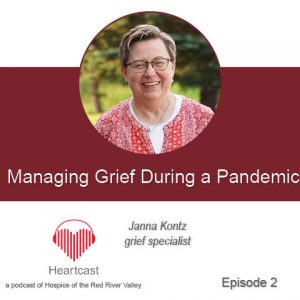 by Janna Kontz, MDiv
by Janna Kontz, MDiv
It’s easy to show up during good times, like the fun family and friends events with vigorous kickball games played by a healthy group, laughter, good food, little cousins running through sprinklers, baseball, and apple pie, and everything else. It’s easy to show up for that.
But life hands us so much more than joyful times—it’s also filled with its share of challenges.
What about when mom or dad or someone else close to you becomes ill and needs extra help? What happens when a sibling loses a job, or their marriage or other relationship falls apart? What about when someone dies, and grief takes hold?
Suddenly, the days become difficult, and laughter seems to be in the rearview mirror. When these times happen, it’s easy and tempting to stay away and leave well-enough alone.
 But the hard times are when we need to show up the most often and be the most available for those we love. Those are the times when our physical presence is necessary, and if we can’t be present physically, our emotional presence is significant. Hard times are labeled that for a reason. They are incredibly challenging.
But the hard times are when we need to show up the most often and be the most available for those we love. Those are the times when our physical presence is necessary, and if we can’t be present physically, our emotional presence is significant. Hard times are labeled that for a reason. They are incredibly challenging.
It’s so much easier to think of aging parents the way they used to be—healthy and able. It’s so much easier to think of crumbling marriages as the way they are supposed to be. It’s so much easier to think of grief and loss as someone else’s journey instead of our own with someone we dearly love. Hard times are hard. And most, if not all of us, would choose to stay away from hard things.
Life doesn’t work that way. When we have people in our lives who are important to us, hard times will come and go. And in those times, love demands that we show up and be present—physically, emotionally, spiritually—however we can. Others may not request that of us because they don’t want to be a burden, but we should demand it of ourselves. Not showing up for others can cause heartache and regret, which can lead to distance and resentment, and even more despair.
What does showing up look like?
- Help your loved one with household tasks that are difficult for them to complete (e.g., housekeeping, lawn mowing, etc.).
- Communicate regularly with your loved one—plan to check-in at the same time of the day, or send timely cards, letters or emails
- Explore and set-up community services, like Meals on Wheels or hospice care (if appropriate), to support your loved one.
- Visit your loved one as often as you can—whether in-person, virtually or over the phone.
- It might work for you to live closer to the individual who needs extra support.
All these things and countless others are ways you can show up. Not everyone is capable or able to care for physical needs. That’s OK. Show up by finding something you can do that will ease the burden of the person. You don’t have to be perfect to show you are present and care for the special person in your life.
Learn more about how Hospice of the Red River Valley can help, contact us or call (800) 237-4629.
Janna Kontz is a grief specialist with Hospice of the Red River Valley.
Click to download and print the article.
About Hospice of the Red River Valley
In 1981, Hospice of the Red River Valley was founded on the belief that everyone deserves access to high-quality end-of-life care. We fulfill our nonprofit mission by providing medical, emotional, personal and spiritual care, as well as grief support to our patients, their families and caregivers during a tender time in life. Our staff helps those we serve experience more meaningful moments through exceptional hospice care, 24 hours a day, 365 days a year, wherever a patient calls home. The organization serves more than 40,000 square miles in North Dakota and Minnesota, including in and around Bismarck, Detroit Lakes, Devils Lake, Fargo, Fergus Falls, Grand Forks, Lisbon, Thief River Falls, Valley City and many more communities. Hospice of the Red River Valley offers round-the-clock availability via phone, prompt response times and same-day admissions, including evenings, weekends and holidays. Contact us anytime at 800-237-4629 or hrrv.org.



